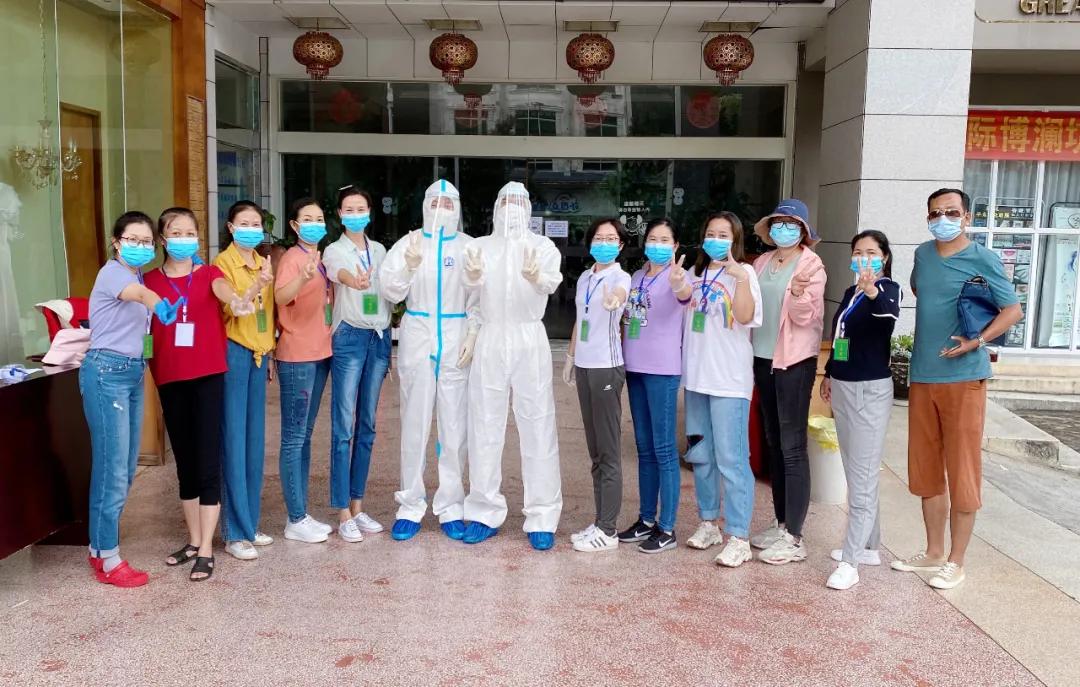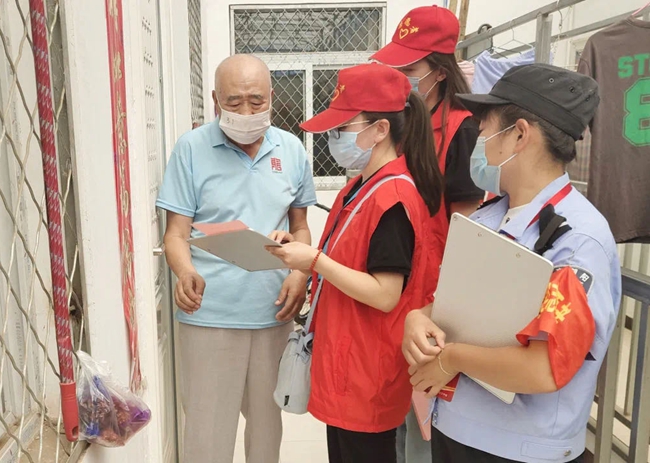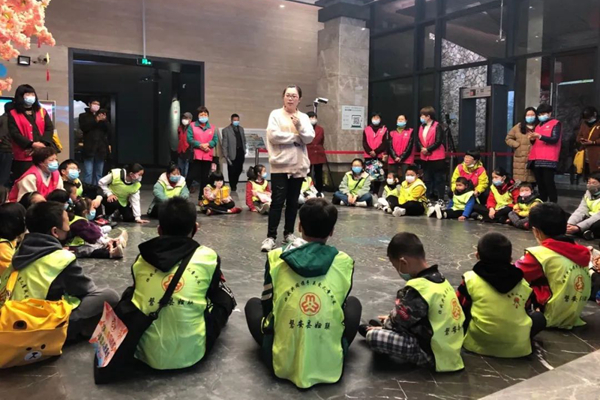
The Unsung Heroes Protecting Public Health
In the event of an epidemic, transportation hubs like railway stations and airports become hotspots for the spread of a virus because of their massive volumes of passenger traffic.
As performing the necessary screening measures for passengers at such large venues requires extensive manpower, hundreds of volunteers have been roped in to help.
Since the COVID-19 outbreak in late January, Ying Weiyi has been working as a volunteer leader alongside more than 300 other people, including police officers, medical personnel, students and white-collar workers, at Shanghai Railway Station.
In her role, the 30-year-old assists passengers with registration upon arrival, performs temperature checks and tracks the whereabouts of those suspected to have the virus before they enter the city.
"Everyone is helping to safeguard the city with their own efforts. I felt I needed to do the same," says Ying, a member of the organization and communication department of the China Communist Youth League Shanghai Committee in Jing'an district.
According to Ying, volunteers are responsible for a number of tasks, including helping inbound passengers with personal registration via QR-code scanning, reminding them to remove their headgear to facilitate temperature checks and assisting with medical checks.
"Although what we do is voluntary, the workload is not light at all," she says.
Her current team comprises more than 80 volunteers split across four shifts. Most of them were born between the 1980s and 1990s. There are also a few post-Millennials.
As the team leader, Ying distributes protective supplies to the volunteers, trains them for the tasks at hand and at times provides counseling. She has also established a WeChat group to share touching stories and photos as a means of encouraging her fellow volunteers.
"There have been many touching stories. Some volunteers who have cars have offered to do the midnight shifts so that others can have the less-taxing shifts. There are also many citizens who have been sending us food, protective supplies and thank-you letters," Ying says.
On March 3, Ying and her team members were taken off the front lines and given a new responsibility-logistics management.
Ying believes this is valuable, too.
"We are still 'guarding the door' for Shanghai, just in a different manner," says Ying.
"I believe that our efforts will help shorten the time required to reach the day when we can finally take off our masks."
(Source: China Daily)
- Women Workers and Volunteers Contribute to Citywide Nucleic Acid Test in Qingdao
 Ruili Women's Federation in Yunnan Joins Anti-COVID-19 Epidemic Battle
Ruili Women's Federation in Yunnan Joins Anti-COVID-19 Epidemic Battle Chaoyang Women's Federation in Beijing Makes All-Out Efforts in Fight Against Virus
Chaoyang Women's Federation in Beijing Makes All-Out Efforts in Fight Against Virus- Women's Federations in C China's Hubei Help Women's Enterprises Resume Work
- County Heads, Women's Federations' Presidents Promote Agricultural Products via Livestreaming Shows
 Medic's Stories About Anti-Virus Fight Inspire Left-Behind Children at Women's Federation's Activity
Medic's Stories About Anti-Virus Fight Inspire Left-Behind Children at Women's Federation's Activity

 京公网安备 11010102004314号
京公网安备 11010102004314号